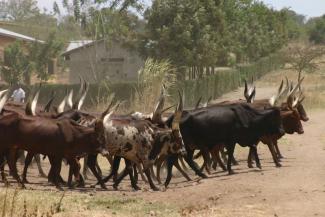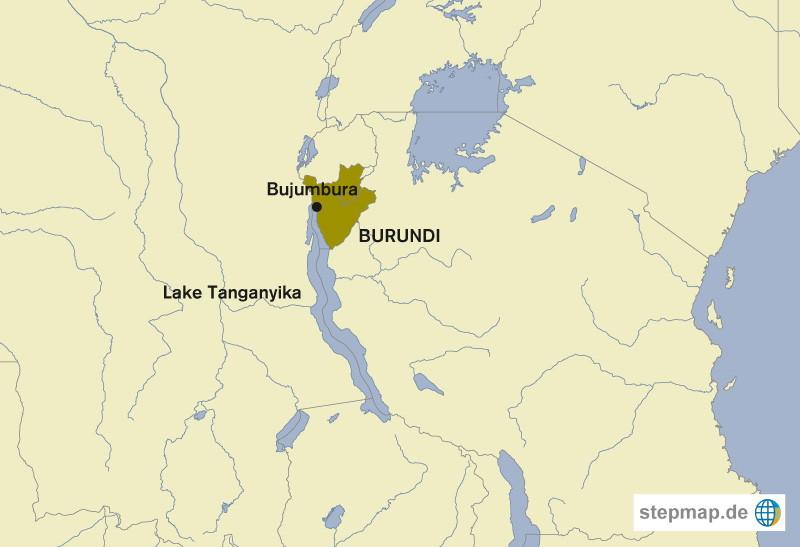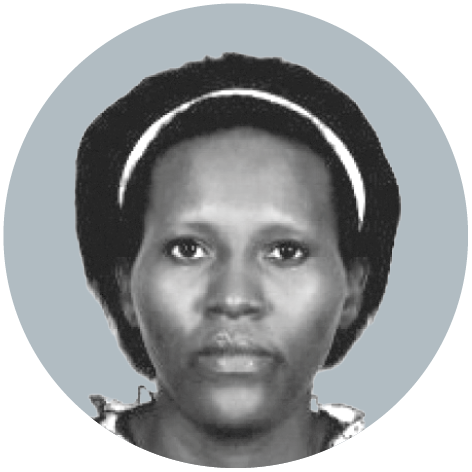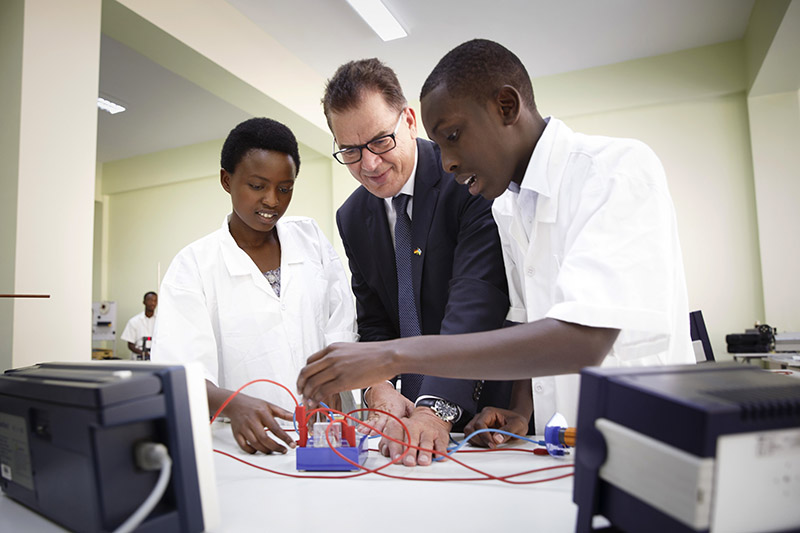EU trade policy
Same rules for all

In 2015, UN member states unanimously adopted the 2030 Agenda for Sustainable Development and its 17 goals. Goal 17 is to boost global trade on fair terms. The exports of developing countries should increase, and companies based there should get tariff- and quota-free access to the world market. Furthermore, the WTO should do more to ensure a level playing field, with the same rules and fair conditions applying to all parties involved. Better trade opportunities would contribute to reducing poverty and thus support the achievement of other SDGs.
What are the implications for trade policy, especially for that of the European Union? Examples like China and South Korea show that trade has lifted some developing countries out of poverty. Many others, however, especially in Africa, are lagging behind. Nevertheless, the EU has not changed course in trade policy, as Bread for the World, the Protestant charity, points out. Other civil-society agencies, including the globalisation-sceptic network Attac, even accuse the EU of self-deception. The trade policy currently pursued by the EU, they say, makes poverty in Africa worse and drives up the number of people fleeing from African countries.
The WTO still matters
“A lot needs to change,” said Karl Falkenberg at a panel discussion hosted by Bread for the World in Berlin in February. A former deputy director-general of trade for the European Commission, he has played a significant role in shaping European trade policy since the 1980s. “We did not understand planetary boundaries,” he says. “In my case, I only started to appreciate them in the past 15 years.”
Today, he has become a sustainability expert and urges Europeans to reconsider issues such as consumerism, production and trade. It is more important than ever, he says, to strengthen regional markets in Africa and thus make them more competitive.
“After we created the WTO, I should have stuck with it rather than neglecting it,” Falkenberg admits today. Instead, he says, trade policy was pursued bilaterally, and agreements were concluded with friendly countries. Discrimination was thus reintroduced into global trade. Falkenberg says the WTO is still a very important body for improving things, however.
Critics see the WTO as a toothless tiger that has liberalised trade but failed to regulate it. Nonetheless, Heinz Hetmeier of Germany’s Federal Ministry for Economic Affairs and Energy (BMWi) points out: “We should count ourselves lucky to have a multilateral system such as the WTO.” It is the only international organisation – he adds – that requires its 164 members to commit to non-discrimination and equal treatment and has mechanisms for settling disputes. Hetmeier praises the WTO for creating the rules and environment needed for globalised trade.
Sigrid Skarpelis-Sperk, however, says there are too few rules. She is a former SPD member of the Bundestag and used to head her party’s parliamentary working group on globalisation. Her assessment is: “World trade needs sanctions and penalties that really hurt those who break the rules.”
Bilateral trade deals concluded by the EU have human-rights clauses and a sustainability chapter. However, violations mostly go unpunished. The human-rights clauses allow signatories to take appropriate measures – including suspending the agreement – if the other party violates human rights or democratic principles. Unfortunately, the clause is not included in every agreement, as an analysis done by Bread for the World reveals. Moreover, there is a lack of mechanisms to register violations.
The sustainability chapters tend to be similarly ineffective. The parties are supposed to respect and implement international labour standards and environmental agreements, but no provisions are made for sanctions in the case of violations.
Partnership agreements under fire
Another controversial issue is the European Union’s increasing use of bilateral agreements, the so-called Economic Partnership Agreements (EPAs). A common point of criticism is that the EU forces partners who are in a weaker bargaining position to open their markets almost entirely to EU products, while at the same time protecting its own market from imports from developing countries. African countries cannot compete with a powerful economy like Germany’s, and cheap EU exports inhibit local industry and agriculture.
Some development economists disagree, however. For example, Helmut Asche argued in a study he wrote on behalf of Heinrich Böll Foundation in 2015 that the finalised EPAs focus on the trade in goods and are geared to phased liberalisation. This approach, according to Asche, serves the interests of African countries (see article in D+C/E+Z e-Paper 2015/12). More recently, however, the same scholar has demanded that the EU reconsider its EPA policies because they are splitting regional organisations instead of promoting regional integration (see article in D+C/E+Z e-Paper 2016/12). Things are especially worrying in Southern Africa, where some members of the Southern African Development Community (SADC) have signed an EPA whilst another EPA is being negotiated with the organisation’s other members.
EPA negotiations have been held since 2002, after the foundation for them was laid in the Cotonou Agreement in 2000. They are WTO compatible because the WTO is in favour of increasing regional integration. The aim of EPA negotiations was to promote trade between the EU and the various regional organisations of 78 African, Caribbean and Pacific (ACP) countries, which are former colonies of EU members.
In a developmental perspective, however, open borders are not the only thing that matters. Market protection can actually be healthy. Gunther Beger of Germany’s Federal Ministry for Economic Cooperation and Development (BMZ) says: “It makes little sense to use EU money to help agriculture and industry develop in Africa and then let trade agreements undo everything again.”
He points out that the East African Community (EAC) imposes duties on foreign milk and meat products, and “the rate is 50 % in the case of milk products”, whereas the Economic Community of West African States (ECOWAS), applies only zero to five percent tariffs. “The comparison shows that East Africa produces significantly more milk and meat.”











